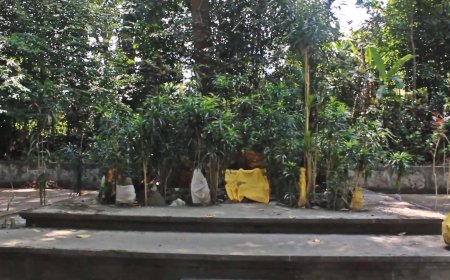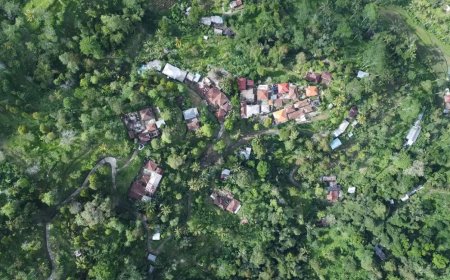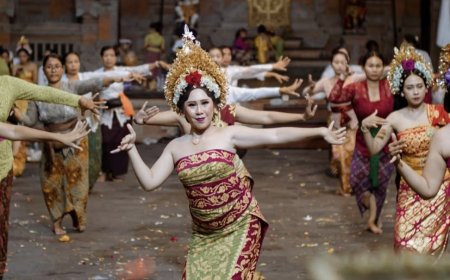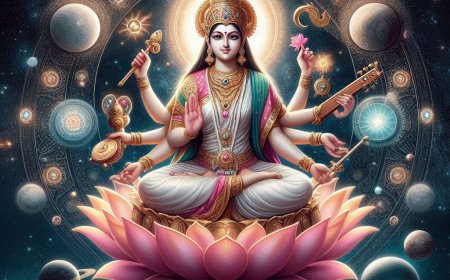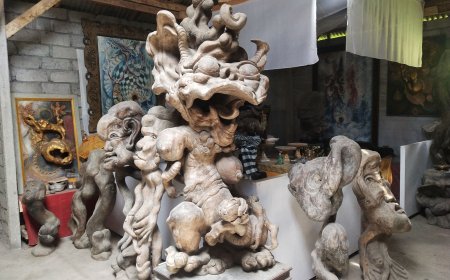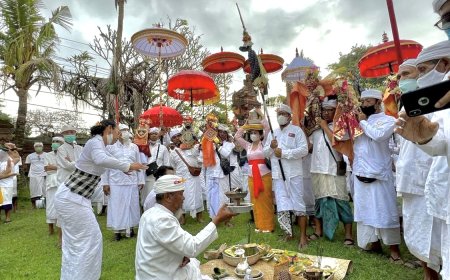Petulu Village: Home of the Storks
Bali, an exotic island with a deep cultural charm and stunning natural wealth, is one of the most popular tourist destinations in Indonesia. However, among the hustle and bustle of tourism in places like Kuta and Ubud, there is a small village that is not yet well known to tourists. This village is Petulu, located in the northern part of the Island of the Gods, Bali. Petulu is not only about the charming natural beauty but also about a special relationship between humans and storks, which are considered sacred by the villagers.

Petulu Village (Photo Source: Author's Collection)
Petulu Traditional Village is one of the many traditional villages that still adheres to the rich traditions and culture of Bali. Located in Ubud District, Gianyar Regency, this village is a different bright spot amidst the hustle and bustle of popular tourist destinations in Bali. From the center of Ubud, it only takes about 10 minutes to drive to reach this village. Petulu is unique with an interesting story about living side by side with Storks, also known as Kokokan Birds.
The story of the sacred relationship between the people of Petulu and storks dates back to a distant past. On October 25, 1965, the villagers of Petulu held a large ceremony known as Pedanan and Dhirgayusa Bumi at Petulu Village Temple. In the framework of this ceremony, many animals were needed as part of the ritual paraphernalia, and one of them was a type of bird. As they were busy preparing for this ceremony, suddenly a group of white birds, about 10-20 in number, landed in a tree in Petulu Village. After further observation, it turned out that the birds were suitable for the needs of the ceremony as part of the ritual material (caru). Therefore, one bird from the group was taken for use in the performance of the ceremony.
After the large ceremony in Petulu Village ended, the Kokokan birds, or storks, returned in larger numbers and gathered in the trees in the village. The arrival of the Kokokan birds was considered by the people of Petulu as a sign from Ida Bhatara Desa and was considered a blessing or gift. Based on this belief, the Kokokan birds were then picked up and offered by the entire community in a special ceremony at Village Temple.
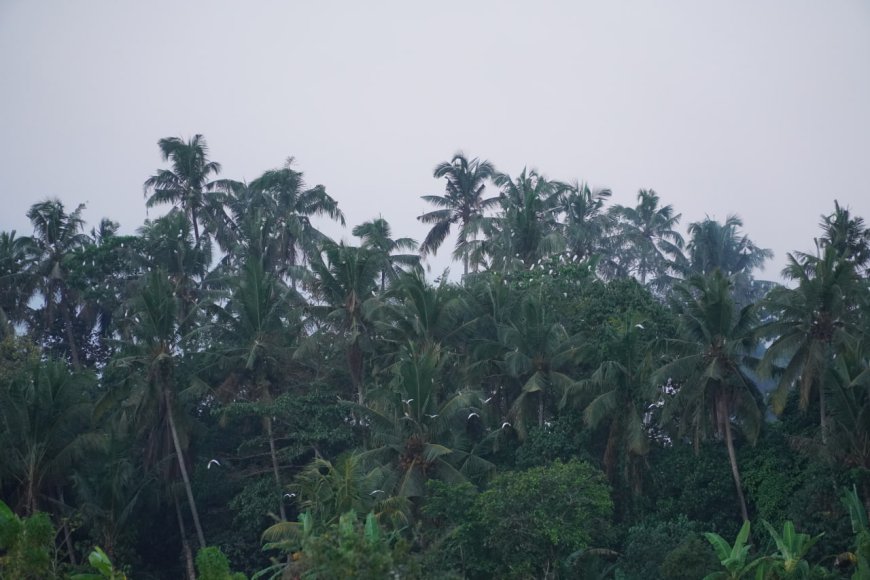
Storks in a tree (Photo Source: Author's Collection)
These storks were then considered sacred and sacred creatures. In addition to the respect given in the ceremony, the villagers also considered building a special shrine to honor these storks. The shrine is located at Pura Desa, which is a sacred place in this village. Village Temple becomes an important place in carrying out ceremonies and religious rituals involving these storks.
Not only involving large ceremonies, but the villagers also hold a otonan ceremony for storks. This otonan ceremony is part of a tradition that is carried out to maintain harmony between humans and the environment, especially animals. This ceremony is performed to cleanse both internally and externally, as well as as a form of commemoration of their age change. The Otonan ceremony of storks is held every six months, specifically on Kuningan Day.
In addition to the otonan ceremony, the villagers also have various other rituals involving storks. One of the most famous rituals is the "ngarak" ritual. In this ritual, villagers will carry storks around the village as a sign of respect. This ritual is usually performed at certain times, such as during religious holidays or when welcoming the arrival of storks in the village.
Between October and March, Kokokan birds come to Petulu Village and undergo the process of mating and reproduction. Usually, they build nests in trees and hatch. It takes about three months from the time the eggs are laid to hatch. Baby birds will learn to fly and find food until they grow up.
Currently, the number of storks in Petulu Village reaches hundreds to thousands of individuals, and they are seen actively moving around every day. Although there are many villages nearby that may be a place of migration for them, these birds choose to stay in Petulu Village. During the day, they are usually seen moving in and out of the village, but in the late afternoon, around 6:00 to 6:30 p.m. WITA, they all gather back in Petulu Village. The late afternoon is the perfect time to witness the beautiful sight of storks in Petulu Village, especially outside of their migration season from October to March.
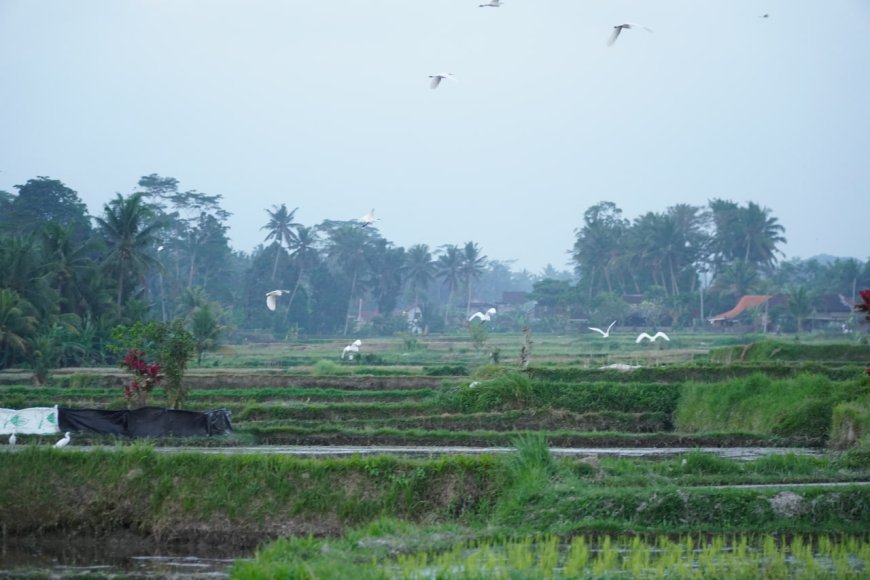
Storks Get Rid of Pests (Photo Source: Author's Collection)
Because it has successfully maintained and protected the habitat of storks, Petulu Village has been recognized by the government and awarded the Kalpataru Award. The Kalpataru Award is a recognition for efforts in environmental conservation in Indonesia. Petulu Village is a real example of how the active involvement of the community in environmental conservation can be appreciated and recognized.
Although initially there was an interest in keeping storks and even taking their meat for consumption, the terrifying experiences experienced by those who tried to catch these birds prevented many people. Most of the nearly 50 people who tried to do so experienced terrifying experiences, both in dreams and in real life. This is a sign that storks have a deeper spiritual role in protecting the village and their environment.
In a spiritual context, storks are considered to be guardians or rencang for Ida Bhatara, the sacred spirit who protects the local temple and its surroundings. These storks serve as protectors of the village, protecting their rice fields from disturbances, both material and spiritual. The terrifying experiences experienced by those who tried to catch these birds are part of the strong belief in their sacred role in maintaining the balance of nature and culture in Petulu Village.

Stork (Photo Source: Author's Collection)
Petulu Village has become a popular tourist destination in Bali. However, this popularity has also posed a threat to the sustainability of the relationship between humans and storks. One of the biggest threats is the increasing number of tourists visiting the village. This can disrupt the activities of the storks and cause stress for them. In addition, the increasing amount of waste can also have a negative impact on the environment of the village.
To address these threats, the village government has taken various steps. One of the steps taken is to limit the number of tourists visiting the village. In addition, the government has also conducted education to the community about the importance of environmental conservation. With the efforts of the village government, it is hoped that the sacred relationship between humans and storks in Petulu Village can continue to be preserved and developed in the future.
Petulu Village in Bali is a living proof of the deep and harmonious relationship between humans and nature. The storks, or Kokokan birds, are a symbol and sacred guardian of this village. By protecting the storks and their habitat, Petulu Village not only maintains a healthy environment, but also enriches the rich Balinese cultural heritage. Petulu is a reminder to us all of the importance of maintaining the balance between humans and nature, as well as the value of trust and respect for the creatures that live around us. Petulu Village is a real example of how culture, nature, and humans can live together in harmony, creating a beautiful and meaningful place.
